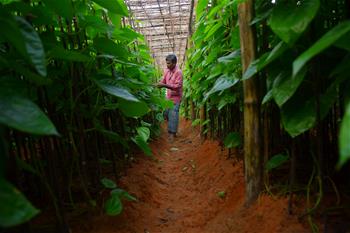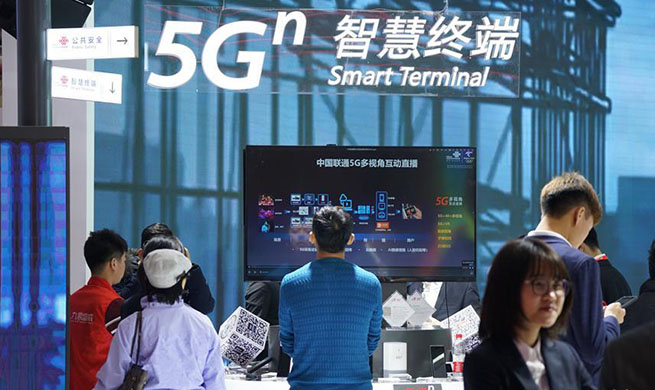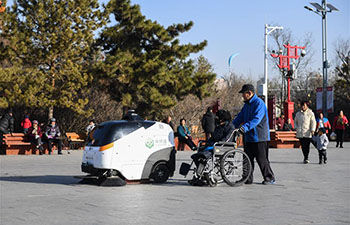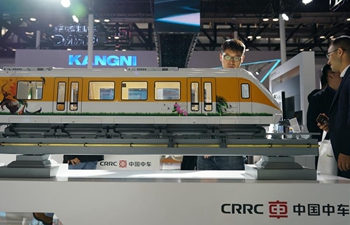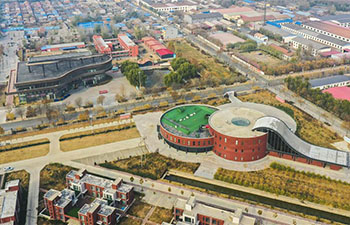CHICAGO, Nov. 21 (Xinhua) -- Higher financial incentives can boost a host of metrics for crowdsourced delivery workers who act as the final link in the supply chain between retailer and consumer, according to a study posted on the website of the University of Illinois (UI) on Thursday.
To investigate the issue, the researchers analyzed a unique data set from one of the leading online-to-offline platforms in China that provides professional delivery service for over 50 million users.
They found that higher financial incentives increase the work probability, work time, delivery distance and delivery frequency of goods for workers.
Slightly decreasing the earnings of workers who were in the top 1 percent, 3 percent and 5 percent of earners and redistributing that money to underpaid workers increased the underpaid workers' service capacity by 14.27 percent, 24.28 percent and 31.57 percent, respectively, according to the researchers.
"Those high-paid workers are still paid at the top 1 percent, 3 percent and 5 percent range on those particular days, so they will still be motivated to work, but we decreased how much they were overpaid and reallocated those extra earnings to underpaid workers, who will work with a little extra financial incentive - and their service capacity responded accordingly," said Xu Yuqian, a professor of business administration at UI.
"The ultimate takeaway message for platform managers is that, by understanding the impact of financial incentives on worker behaviors, a simple targeted monetary incentive mechanism can improve service capacity significantly."
In addition, the researchers documented that "income-targeting behavior" is not observed in the crowdsourced delivery setting when compared with the ride-hailing setting.
For businesses, the paradigm shift in labor represents a new challenge because "now you have less control of your workers," Xu said.
Businesses that rely on short-term gig workers have to be aware of their worker capacity each day or even each hour level, but also keep an eye on quality control, Xu said. And one factor that can moderate that uncertainty is rewarding good workers.
"Our findings can help crowdsourced delivery platforms better design their incentive mechanisms going forward," Xu said.



